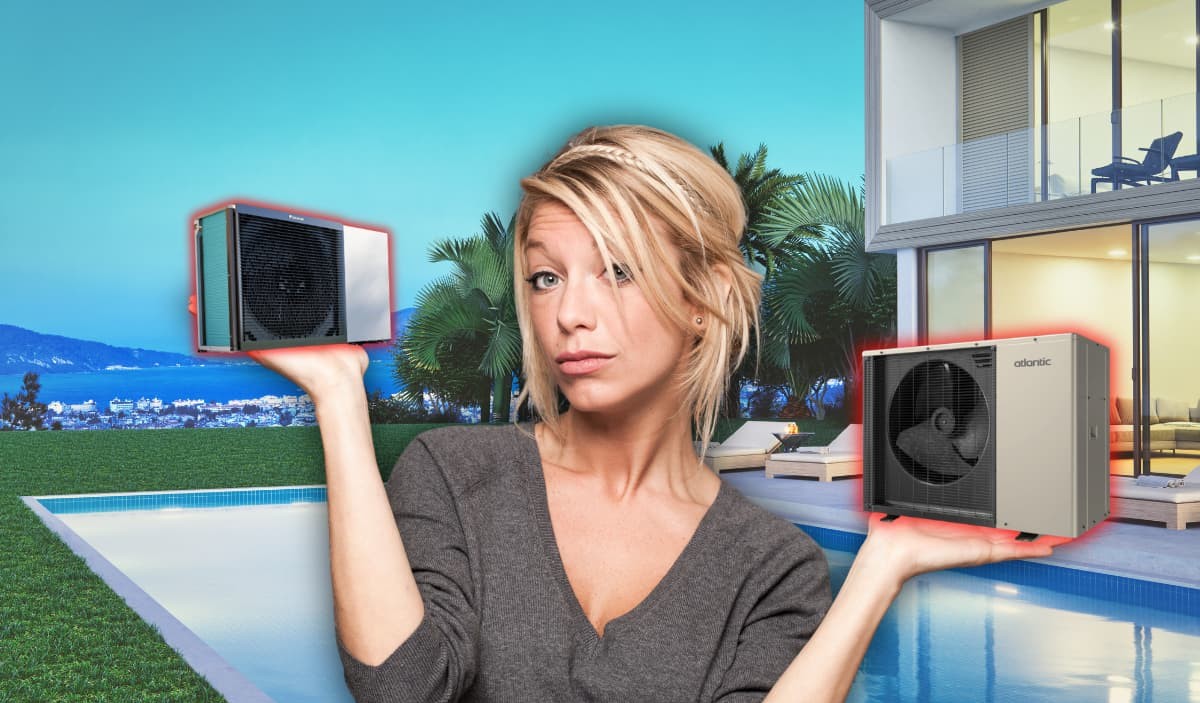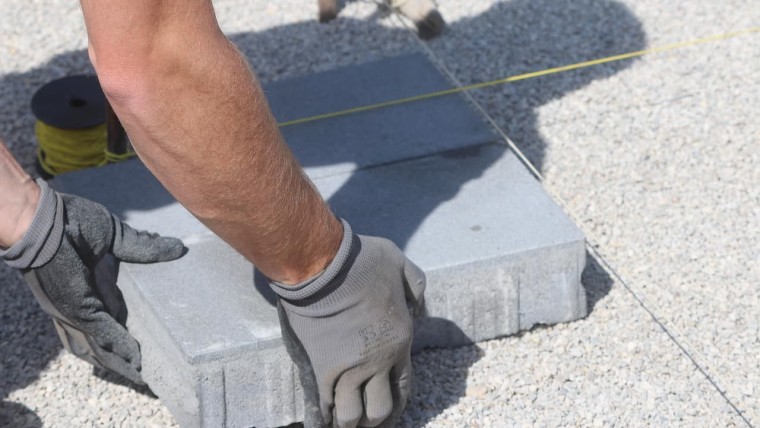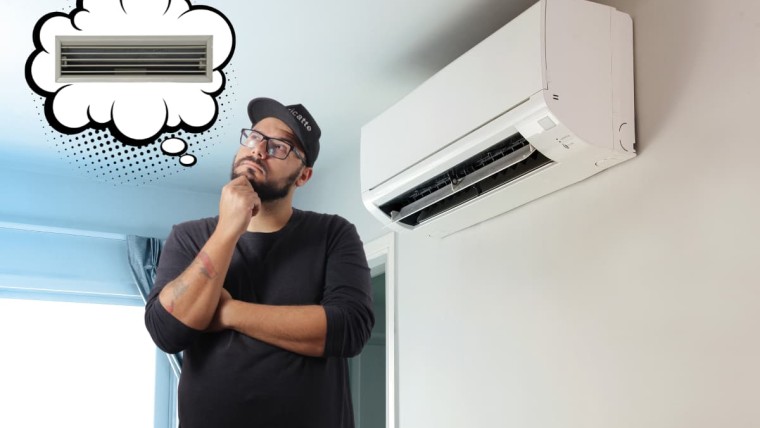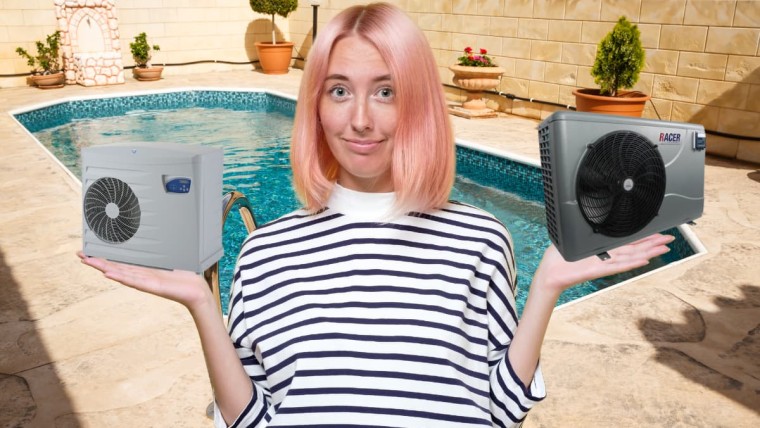If you're one of the homeowners looking to replace your fossil-fuel heating system, or if you're building a new home, you may be hesitating between different heat pump models.
You're probably familiar with two of the best-known brands: Japan's Daikin and France's Atlantic.
In this article, we'll compare two heat pumps built by one of these two most popular brands. Daikin vs Atlantic: here we go.
A reminder of the two brands of heat pumps: Daikin & Atlantic
On the one hand, we have the Japanese brand that is virtually the best known in the world of heat pumps: Daikin. Founded in 1924, Daikin is best known for its air conditioners, which can be found all over the world, and for its state-of-the-art heat pumps, particularly in terms of aesthetics, acoustics and low-temperature efficiency.
On the other hand, we have Atlantic, the Vendée-based brand that is France's leading heat pump manufacturer, with one of the largest research centers in France. Atlantic announced in 2023 that it would double its production by 2028, which would represent around 180,000 heat pumps a year within 5 years. The aim is to meet the growing demand for heat pumps to replace fossil-fuel heating systems. To achieve this, they will be building a new plant in Saône et Loire, on no less than twenty hectares of land.
The two heat pump models in the Daikin vs Atlantic comparison
To make a meaningful comparison, we're going to choose two equivalent models. One from Daikin and the other from Atlantic.
For the Daikin brand, we consider the Daikin Altherma 3 M size 08 model, which is a monobloc, meaning that all heat exchange takes place in the outdoor unit.
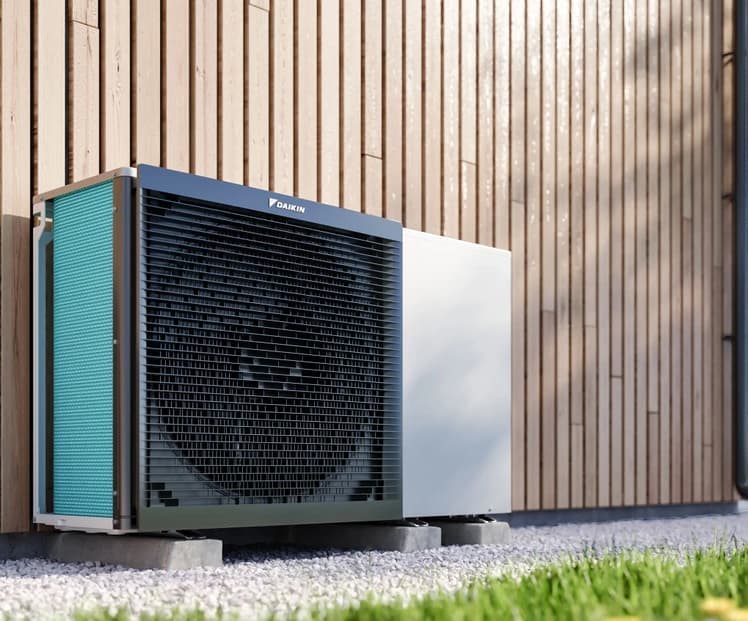
For the brand Atlantic we consider the Alfea Extensa M Duo model 8kW, which is also a monobloc model.
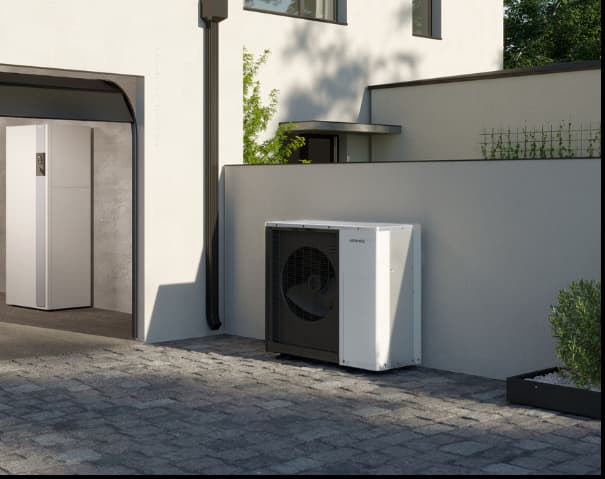
Daikin vs Atlantic thermal performance: which is more economical?
View Daikin Altherma M Monobloc data sheet Size 08
See Atlantic Extensa M 8 data sheet
For low temperatures (35°C)
In the case of hydraulic underfloor heating, the Daikin model develops 7.28kW at -7°C outside, with a COP of 2.67. Despite this value below 3 (normal at -7°C), Daikin's SCOP at 35°C is 4.56, making it an A++ machine.
In comparison, the Atlantic Extensa M size 8 delivers 8.18kW A-7/W35 with a COP of 3.03. The SCOP at 35°C of the Atlantic Extensa M 8 is 4.94, which also makes it an A++ heat pump.
In the low-temperature range, the French brand has a slight advantage, delivering approximately 8% more low-temperature heating performance than Daikin.
For medium temperature (55°C)
For higher temperature requirements, for example with cast-iron radiators, the Daikin model delivers 6.74 kW A-7/W55. The SCOP is 3.32, making it an A++ heat pump.
The Atlantic Extensa M 8 delivers 7.5kW A-7/W55, for a SCOP of 3.54, which also makes it an A++ heat pump.
Here again, Atlantic has a slight advantage at medium temperature: theoretically 6% better on paper.
Daikin vs Atlantic aesthetics
Daikin is known for its advances in design. It was one of the first brands to pay attention to the appearance of its machines, knowing that this was a deterrent to purchase. On this model, Daikin uses its attractive design grille to give the outdoor unit a modern look. The anthracite gray finish blends in well with the surrounding environment and is not too messy.
Atlantic also makes an effort with this model. The outdoor unit has a rather elaborate design, with an attractive black fan grille. The white unit remains classic.
Overall, I prefer the Daikin in terms of design. It will probably age better.
Daikin vs Atlantic footprint
The Daikin Altherma 3M size 08 unit measures: 770 x 1250 x 396 mm, while the Atlantic Extensa M 8kW unit measures: 1008 x 1093.5 x 515 mm
A slight advantage for the Japanese brand, which manages to concentrate its components a little more, for a footprint around 30% smaller than Atlantic's, and above all a little more than 10cm smaller in depth, and 24cm smaller in height, making it easier to fit under a front window.
Noise Daikin Altherma 3M vs Atlantic Extensa M 8
We're interested in the noise generated by the outdoor unit, which is the most annoying most of the time.
Atlantic's sound pressure at 5m is 34dBA, while Daikin's is 40dBA.
Both measurements were made for a free field with a directivity of 2.
Atlantic offers a machine that is 6dBA quieter at 5m. It's still not half as noisy, but it's an advantage, especially in the case of close neighbors who might be disturbed, in order to obtain authorization, or to avoid inconveniences that could lead to court action.
Daikin vs Atlantic prices: which is more expensive?
The Atlantic Extensa M 8kW heat pump is priced at around €8500 inc. VAT, which includes the outdoor unit as well as an indoor module comprising the 190-liter domestic hot water cylinder. This is the retail price. The price at which your installer will certainly sell it to you, more or less 5%, depending on the conditions he has with his wholesaler.
The Daikin Altherma 3M heat pump comes in at around €5500 inc. VAT, which coupled with a domestic hot water cylinder brings the price to just under €8000 inc. tax.
To this price must be added accessories, piping and, of course, installation labor. Depending on the situation, this will bring the total price easily to between 15 and 20,000 euros (incl. VAT).
While the French Atlantic PAC may seem a little more expensive than its Japanese competitor Daikin, its slightly higher performance and lower noise levels may justify the Made in France choice.
In a nutshell:
In terms of thermal performance, the Atlantic Extensa M 8kW appears slightly superior to the Daikin Altherma 3 M size 08, especially in terms of low- and medium-temperature heating. In terms of aesthetics, Daikin stands out for its modern design and better integration into the environment. In terms of footprint, Daikin also takes the lead with its more compact dimensions. In terms of noise, the Atlantic is less noisy, a considerable advantage in residential contexts.
On the price side, although the Atlantic heat pump is slightly more expensive, its superior performance and reduced noise level could justify this difference for some consumers, especially those who prefer "Made in France".
In short, the choice between Daikin and Atlantic will depend on each homeowner's individual priorities, be they performance, design, space, silence or budget. This comparison highlights the strengths and weaknesses of each brand, helping consumers to make an informed choice according to their specific needs.

Julien G.
Juliena mechanical engineering graduate and specialist in climate engineering since 2009, has become a writer specializing in renewable energies, with expertise in heat pumps and photovoltaic solar panels for individual housing.
See all articles by this author
